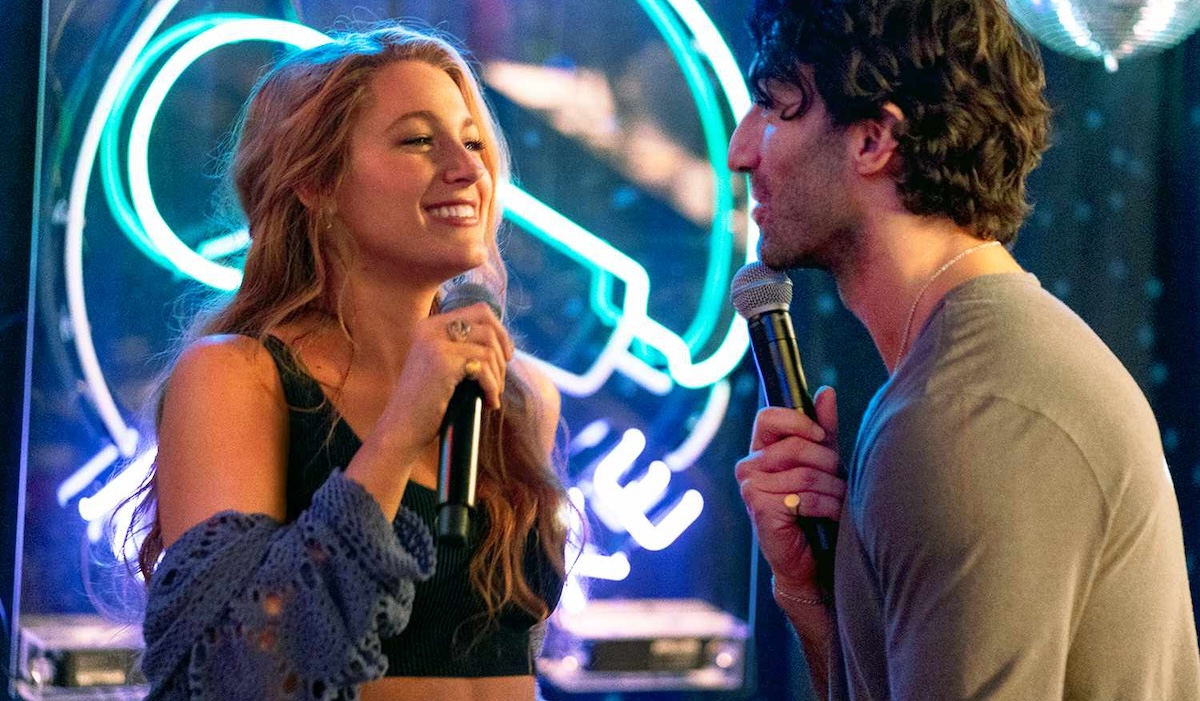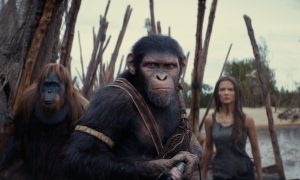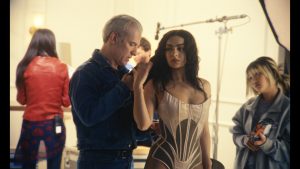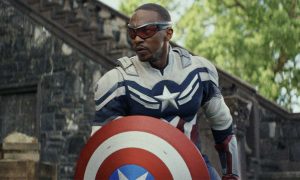
This post contains spoilers for It Ends With Us.
Lily Bloom sits at the edge of a tall building, smoking a cigarette while thinking about her late father, whose final days she intentionally avoided. Her contemplation is interrupted by the sudden arrival of Ryle Kincaid (Justin Baldoni), who storms onto the rooftop and kicks a chair.
Thus is the meet cute of It Ends With Us.
“Meet Cute” is, of course, the term used to describe the unlikely circumstances under which the central couple first encounter one another. It can be a squabbling German couple prompting Jesse (Ethan Hawke) and Celine (Julie Delpy) to start talking in Before Sunrise or Emily (Zoe Kazan) heckling Kumail (Kumail Nanjiani) at a standup show in The Big Sick. So those who came to It Ends With Us expecting a traditional romance movie wouldn’t be thrown off by Lily (Blake Lively) and Ryle’s (Justin Baldoni) meeting, not even with the darker elements.
After all, the two soon fall into recognizable behavior for romantic leads. “Was it a woman? A man?” Lily asks about his angry outburst. “It was a chair.” When Ryle tells Lily that he’s a neurosurgeon, she breaks into laughter, surprised that he isn’t a “crypto bro.” Later when their make out session gets interrupted by a phone call from the hospital, Lily laughs again, admitting that she still didn’t believe him until the hospital called.
From Desire to Danger
Turns out both Ryle’s chair kick and Lily’s strained relationship with her father play important roles in It Ends With Us, even more so than their steamy kiss. That’s not a surprise to anyone who read the Colleen Hoover novel on which the movie is based, a bestseller from 2016 and favorite among book-focused TikTok channels.
Hoover’s novel deals directly with the cycles of domestic violence. In the novel, Lily and Ryle get married, even though Lily’s own mother was physically abused by her father. Throughout the engagement and marriage, Ryle grows more violent and controlling, especially after her high school sweetheart Atlas comes back into her life. The violence climaxes with Ryle raping Lily, through which she becomes pregnant. At the end of the novel, Lily decides to break the cycle for the sake of her daughter, leaving Ryle.
All of this happens in the movie adaptation, directed by Baldoni and written by Christy Hall. And much of it appears in the first official trailer for It Ends With Us, which closes with Lily saying, “You either break the pattern… or it breaks us.” However… unless you read the book or remembered that ambiguous line at the end of said trailer from months ago, you might have walked into It Ends With Us totally unaware of what the movie is about.
In the later trailers and TV spots, the story is presented as a standard romantic drama, highlighting the passion between Lily and Ryle and the love triangle that arises when Atlas (Brandon Sklenar) comes back into their lives. Shots of Ryle and Atlas fighting, or Ryle smashing something on the floor, play like moments of passion, unacceptable in real life but totally normal in a movie. The only hint of violence comes at the very end of the trailer, with a long shot on Lily, who has a cut on her forehead.
This noticeable omission in marketing has been further heightened by headlines from press tours that focused more on behind the scenes drama about a split between Lively and Baldoni, with some claiming that Lively exercised her rights as a co-producer to take final cut from the director Baldoni, and insiders speculating that Lively is trying to engineer a “Barbieheimer” with Deadpool & Wolverine, a project headed by her husband Ryan Reynolds. Marketing stunts include Reynolds (and his mother) crashing a junket to interview his wife’s “lover” Sklenar. Whether the “Barbenheimer” comparison was desired by the It Ends With Us team or not, the messaging seems to have stuck, with trades even embracing the comparison by calling the movie’s box office success “Barbenheimer 2.0.”
An Ugly Lie
It’s easy to understand why the trailers and other marketing would downplay things like domestic violence and rape. Like most genre works, romance movies offer escapism and fantasy, a glimpse at a better and more hopeful worlds. They tend to end with the central couple overcoming all obstacles to get together, to live happily ever after. As with any other genre entries, certain romance movies can play with these structures to engage with larger themes or to interrogate the assumptions within romance movies, but they still at least address certain audience expectations.
And that’s exactly what Hoover, Baldoni, and Hall do in It Ends With Us. They upset the traditional romance narrative to show that a seemingly charming guy can, in fact, be deadly. They position Lily as a woman who refuses to follow the romance genre guidelines and leave Ryle, for the sake of herself and of her child.
But that’s not what the later trailers and social media campaigns have promised or emphasized. Misleading marketing is of course nothing new. Heck, Ana de Armas fans were so upset that her scene in the Yesterday trailer didn’t appear in the finished movie that they took the studio to court. Yet there’s a huge difference between cutting out a certain actor or scene that doesn’t end up working, and hoisting a serious topic such as domestic violence onto an audience who has come for romantic escapism.
Domestic abuse is a very real issue, made more difficult from the expectations placed on partners of any gender. Not only could unexpected depictions of domestic violence trigger a trauma response in survivors, but diminishing the subject matter for the sake of ticket sales acts as just one more way the issue gets silenced.
No More Hiding
Domestic violence needs to be talked about. It needs to be seen in art and it needs to be something that we as a society don’t ignore. It Ends With Us does not at all turn away from the issue. It shows how people can get caught up with an abusive partner and how hard it is to get out, while still offering a hopeful ending.
The marketing needs to match those goals, not shy away from important themes.
It Ends With Us is now playing in theaters.
The post It Ends With Us’s Marketing Campaign Cheapens the Movie and Its Themes appeared first on Den of Geek.








